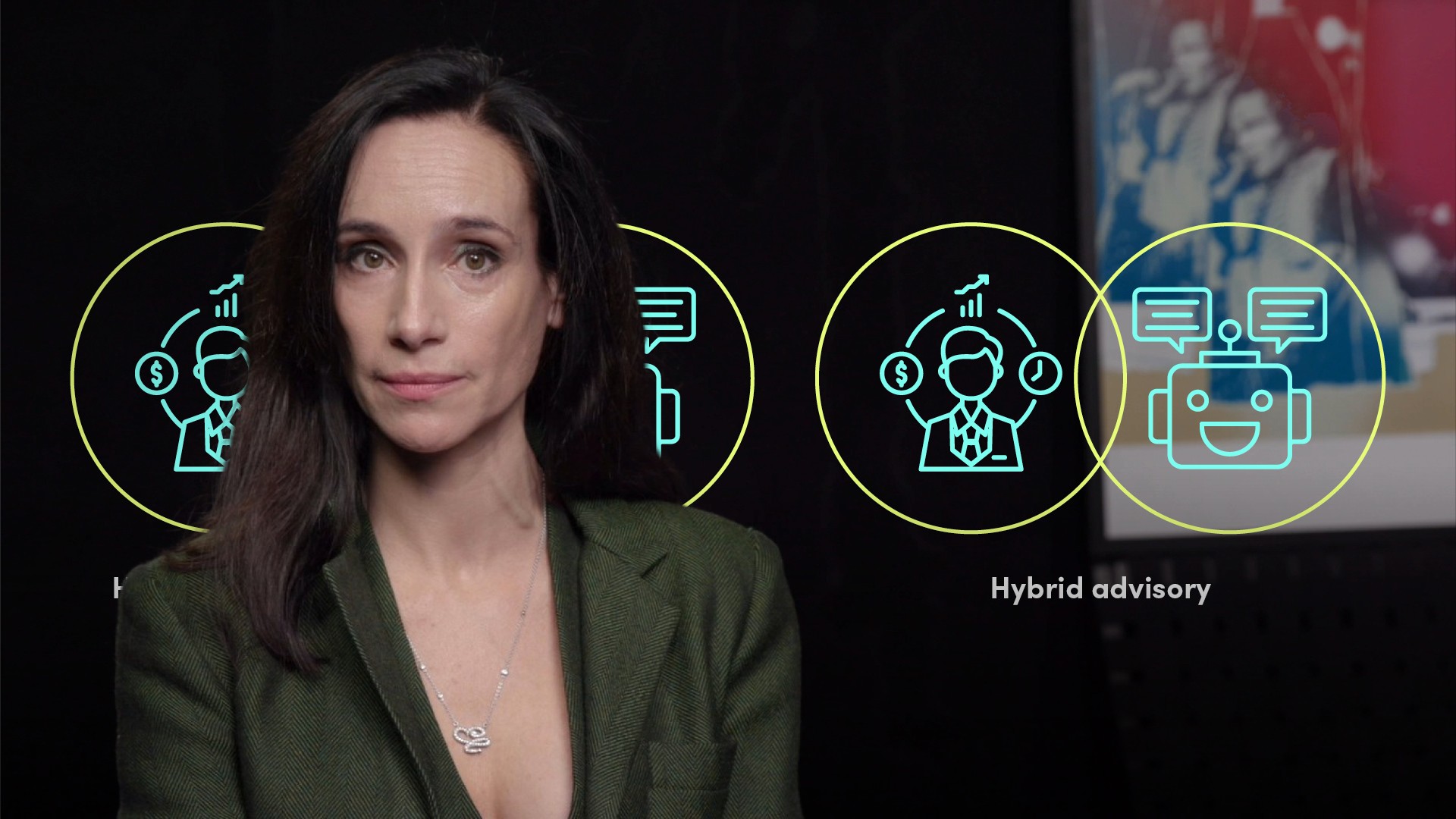
What is Wealth Management?

Elisabeth Dana
20 years: Wealth management & banking
In this video, Elisabeth gives us an overview of wealth management along with its three main service elements, "Asset management", "Portfolio management and investment advisory" and "Trusts, funds and other financial vehicles". Elisabeth talks about the current market dynamics of global wealth management and concludes by explaining the initial steps to understand the 3 phases of wealth management.
In this video, Elisabeth gives us an overview of wealth management along with its three main service elements, "Asset management", "Portfolio management and investment advisory" and "Trusts, funds and other financial vehicles". Elisabeth talks about the current market dynamics of global wealth management and concludes by explaining the initial steps to understand the 3 phases of wealth management.

What is Wealth Management?
12 mins 55 secs
Key learning objectives:
Define Wealth management
Outline the three main service elements of Wealth management
Overview:
Wealth management is about marrying up your current financial situation with your future goals. It has been built around managing the assets of High and Ultra-High Net Worth Individuals (HNWIs), Pension Funds, Insurance Companies and Sovereign Wealth Funds.
What is Wealth management?
Wealth management is the art of optimising the assets owned by private individuals. It is a holistic approach that takes current financial situations, family dynamics, individual financial goals, and risk tolerance into account in order to formulate the best possible short, medium, and long term strategy for managing private individuals' wealth. True wealth management takes into account all financial aspects relating to a client, including taxation, insurance, charitable goals, and legacy planning.
What are the three main service elements of Wealth management?
- Asset management - for example, stocks, bonds, real estate, master limited partnerships, and private equity.
- Portfolio management and investment advisory - this involves overseeing investments and ensuring that they match up to a client’s risk level.
- Trusts, funds and other financial vehicles - wealth managers can establish trusts which will provide legal protection for the trustee’s assets and ensure the assets grow before being distributed according to the directions of the trustee.
What are the two areas of wealth management?
Wealth Management is most commonly divided into two areas:
- Private banks - Private Banks typically serve a much greater number of private clients than Family Offices and are more focused on investment transactions rather than a holistic advisory approach.
- Family offices - Family offices are full-service private wealth management offerings that serve just one or a small number of ultra-high-net-worth families. They also provide planning, charitable giving advice, concierge, and other comprehensive services.
Typically both Private Banks and Family Offices charge up to 2% of the wealth they manage as fees.
What are the types of advisory a wealth management can be divided into?
- Human advisory - accounted for 98.6% of wealth management advisory in 2019.
- Robo advisory - expected to be the fastest growing segment in the market, at a Compounded Annual Growth Rate of 26.1% during 2019-2023.
- Hybrid advisory - offers both standardised computer-driven analysis and personalised advice and bespoke solutions to clients.
What are the steps to understand the three phases of wealth management?
- Wealth creation – the stage at which your work generates income and capital.
- Wealth preservation – the stage where you have some money and deploy techniques to preserve it, starting with ensuring your “pot of money” is not eroded by inflation.
- Wealth growth – the stage at which you allocate a portion of your wealth to creating more wealth, which happens when you take a certain amount of risk.

Elisabeth Dana
There are no available Videos from "Elisabeth Dana"

